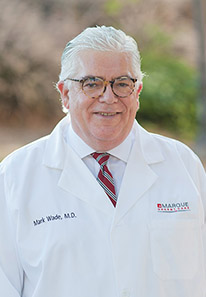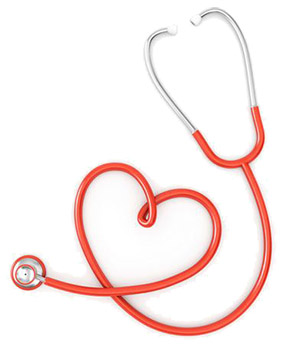
WHAT IF you could decrease your risk of cardiovascular disease?
First, we need to understand what this term means. We are talking about atherosclerotic cardiovascular disease in which plaques laden with fat and scar tissue narrow and obstruct arteries. About 50 percent of the time this diagnosis involves coronary heart disease where the arteries which supply blood to heart muscle are obstructed. The remainder of cases involve cerebrovascular disease which can cause stroke, peripheral artery disease whereby the circulation to the legs is compromised, and aortic atherosclerosis which can lead to thoracic and abdominal aortic aneurysm.
The traditional major historical risk factors for cardiovascular disease are high blood pressure, smoking, and diabetes. We should also add a laboratory measurement and high cholesterol level to the major risk factor list. Lesser risk factors are: having an early family history of cardiovascular disease, chronic kidney disease, and obesity. It has been well-established that if we can significantly reduce the major risk factors we can reduce the incidence of cardiovascular disease. This is particularly true for the lowering of cholesterol levels. For example, the long-term Framingham Heart Study has shown that, when studying 50-year-old women with no clinical evidence of cardiovascular disease, if all their risk factors were optimized, only 8 percent went on to develop cardiovascular disease in their lifetime, whereas if they h ad 2 or more major risk factors, 50 percent later developed such disease. For men, the difference was even more dramatic with only 5 percent developing cardiovascular disease if risk factors were optimized, whereas 69 percent developed disease if there were 2 or more risk factors.
ad 2 or more major risk factors, 50 percent later developed such disease. For men, the difference was even more dramatic with only 5 percent developing cardiovascular disease if risk factors were optimized, whereas 69 percent developed disease if there were 2 or more risk factors.
When we consider that when cardiovascular disease develops, it generally begins well before the age of 50 (there has been evidence that it can begin in the teenage years), we can understand how important cardiovascular risk factor screening is to long-term health. Identifying and successfully treating lipid (cholesterol and triglyceride) elevation, high blood pressure, and diabetes is easy to do and makes an enormous difference.
So, to answer our initial “WHAT IF…” question, if you identify and improve your risk factors you can live longer and healthier.
We also know that if disease is already present, there is a much better outcome if we can identify it and correct it, or at least decrease it or compensate for it, earlier in the process rather than later. Many people with cardiovascular disease don’t have any specific symptoms until something bad like a heart attack, a stroke, or sudden death happens. So, WHAT IF there were a risk-free and easy way that you could identify whether you already have disease?
There is an easy and readily available way to do this. SmartBeat is a unique and comprehensive cardiovascular screening program which not only evaluates for lipid elevation, diabetes, high blood pressure, but which directly identifies and measures existing cardiovascular disease. Blood flow measurement techniques evaluate peripheral arterial circulation. Vascular ultrasound directly measures plaque and narrowing in the aorta as well as the carotid arteries (which lead to the brain). Additionally, special ultrasonic echocardiography directly visualizes the heart muscle in real-time. From looking directly at heart muscle we can obtain valuable information about coronary artery blockage. Echocardiography also quantitates the pumping strength of heart muscle which is the most important determinant of the risk of sudden cardiac death.
So WHAT IF you could easily screen for cardiovascular risk factors, enabling you to modify them early in the process? (You can.)
And WHAT IF you could easily, and without risk, directly identify and quantitate existing cardiovascular disease, allowing you to aggressively work to correct it before a health crisis occurs? (You can.)
And WHAT IF there was a readily accessible comprehensive screening program called HeartStrong? (There is.) And is covered by all insurance carriers? (It is.)
The information provided is for general interest only and should not be misconstrued as a diagnosis, prognosis or treatment recommendation. This information does not in any way constitute the practice of medicine, or any other health care profession. Readers are directed to consult their health care provider regarding their specific health situation. Marque Medical is not liable for any action taken by a reader based upon this information.

Favorite Platform

New Content



